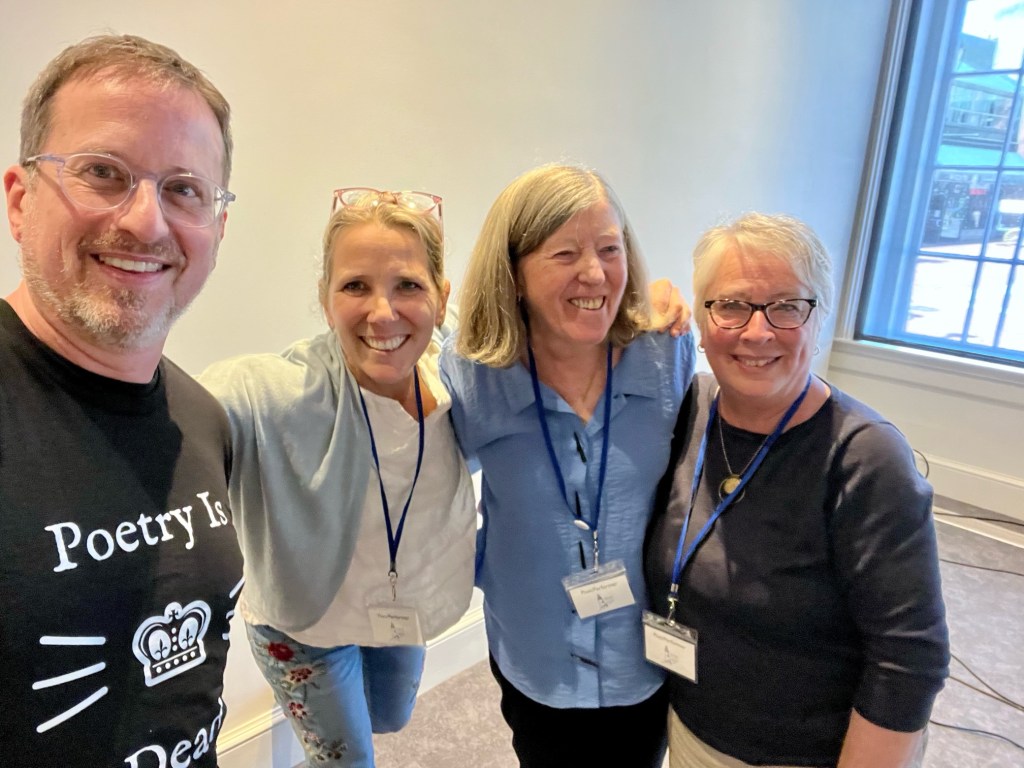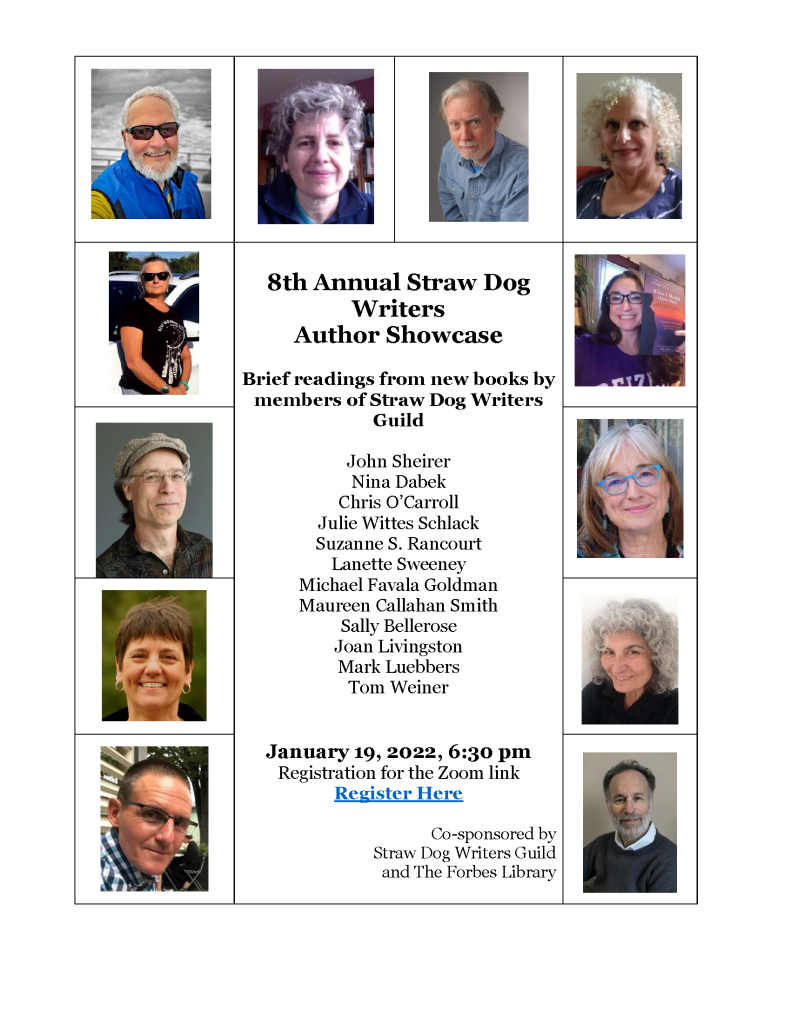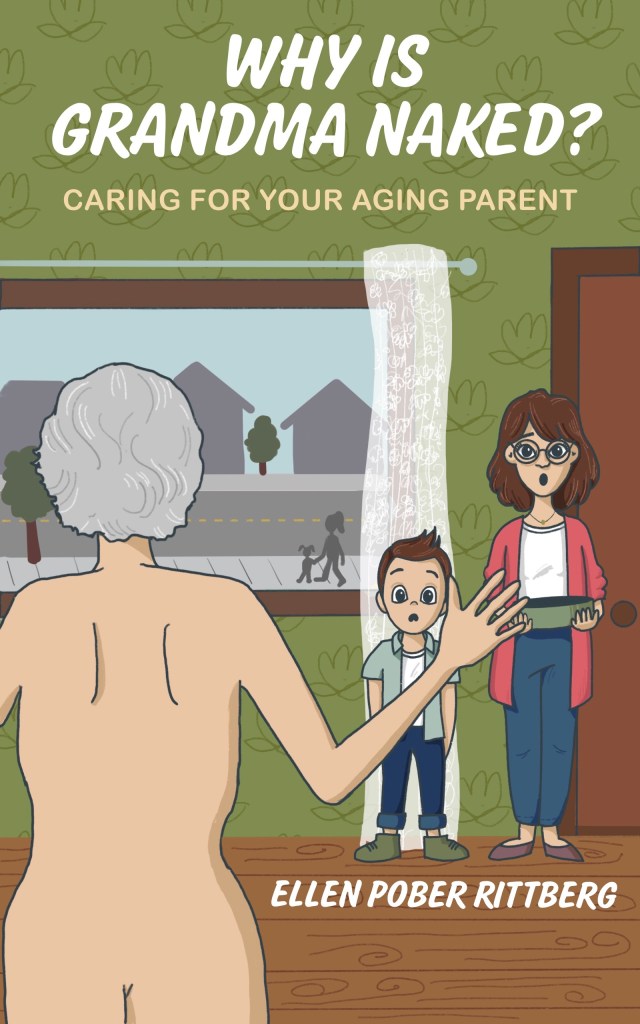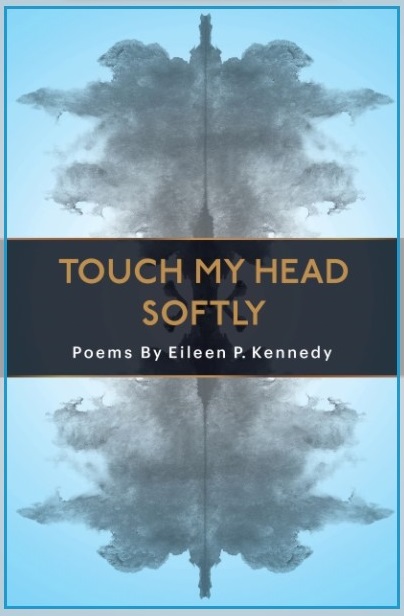
Thanks to the Massachusetts Poetry Festival for sponsoring our reading of Alzheimer’s Poems.
I read with some amazing poets: Gail Thomas, Christine Jones and Eric Hyatt. It was a great experience!
I’ll be blogging on Thursdays. Follow me here.
There is going to be an in-person reading of prose and poetry at Grand Hall, Workshop 13 Cultural Arts and Learning Center in Ware, Massachusetts on Sunday, October 23 at 2 pm. If you’re in the area, do drop in. It’s right down Route 9, which is glorious fall now. Grand Hall is at 13 Church St. , Ware.
See Workshop13.org for more details.
It has been awhile since I did an in-person reading, but if you are in Western Massachusetts on Sunday, October 23rd, I encourage you to come. The attached flyer has the details.

Here is the link to register: https://www.strawdogwriters.org/post/8th-annual-straw-dog-writers-author-showcase
Ok, so your piece has been rejected. As writers, we all go through it. Rejection can be defined as the act of pushing something away. We submit a piece or a manuscript somewhere where we think it will be a fit, and the powers that be don’t see it that way.
One thing I find that helps is knowing that publishing is just a business. A publisher is looking for something specific and your writing may not fit the bill. It doesn’t mean that it’s bad, it just means it’s not what the publisher is looking for.
Most editors don’t comment on their rejections, but if you do get feedback, you may learn from it. I had an editor tell me I was using too many adjectives and adverbs. I took the advice to heart and started editing them out, and it made my writing stronger.
When a piece has been rejected several times, I try revising it. Language in its uneducated, natural form, reveals if we uncouple our own judgment and explore linguistic vehicles, the piece may be better. In poetry, it sometimes means trying a different format. If it’s a free verse poem, I’ll try something more formal, like a pantoum or sonnet. It sometimes can provide a different, more successful vehicle for the piece.
Another thing I sometimes try is reordering the piece. The last line might not be right. The last line might be found a stanza or two up. Maybe I’ve done too much explaining, and it wants cutting. Or the beginning of the piece might better serve it in the middle.
When I did my last collection, “Touch My Head Softly,” I kept rearranging the order of the poems. Then I realized nothing fit the beginning. So I wound up writing a prose poem to start off the collection.
When I’m going through rejections, I sometimes remind myself why I like to write, and this often makes me feel better. I wrote the poems in Touch My Head Softly, about my partner who died of Alzheimer’s in his sixties. It helped me to get through my grief by doing this and this became an end in itself.
You can view my collection Touch My Head Softly, at:
https://www.finishinglinepress.com/product/touch-my-head-softly-by-eileen-kennedy/
Touch My Head Softly can be viewed on Goodreads at:

Have you ever had the experience of finding someone who wrote a book on a similar topic to yours? It’s not exactly déjà vu, but there is definitely resonance there. I just published a collection of poems about my partner who died of Alzheimer’s and Dementia in his 60’s (Touch My Head Softly, Flutter Press, 2021.) and this book I discovered was about caring for an elderly mother with among other things, dementia (Why Is Grandma Naked?: Caring for Your Aging Parent,Kelsay Books, 2021.) The scenarios are not the same, but many similarities about caretaking and emotions in this situation are similar.
Author Ellen Pober Rittberg, playwright, talk-show host, attorney, writer, approaches the subject of caring for the aging family member, who wants to among other things, take off clothes in inappropriate situations, with humor and grace. My book of poems talks about, when my partner accuses me falsely of infidelity, of how to survive the ordeal of a loved-one in an altered state of reality.
Rittberg describes her journey with her mother as joyous, stressful, life-altering and worth every bit of energy because “we never know how long our parents will be with us.” My poetry is more a backward look at what went on to make sense of the experience. Rittberg talks about the nursing home dilemma, especially relevant post-pandemic, that she faced with her mother and family, My poems deal with the dilemma of the death.
Feel free to take a look at either or both books at:
#https://www.finishinglinepress.com/product/touch-my-head-softly-by-eileen-kennedy/


Writing is necessary for so many things. We need it to exist in the world.
At school, we are judged and given grades by how well we perform on paper. The academic essay is the ultimate test.
To communicate at a distance with friends and loved ones, we need to know how to write.
Writing falls into all genres. From realistic fiction to mysteries to sci-fi to poetry to academic papers, your writing is only limited by your imagination.
I have written in many genres. I am specializing in poetry these days. I recently published a collection of poems called Touch My Head Softly about my partner who died of Alzheimer’s. Take a look:
#https://www.finishinglinepress.com/product/touch-my-head-softly-by-eileen-kennedy/

Touch My Head Softly by Eileen P. Kennedy is a heartbreaking but honest collection of poetry. The poems are a stirring reflection of emotions, both before and after, the death of her partner that detail love, sorrow, and frustration. Kennedy’s poetry portray heartbreak and sorrow in few, but powerful, words.
The opening piece to her collection, “The First Decade of the Twenty-First Century,” encapsulates the decade with not only current events like the first black president but also with events in her own personal life, like the death of her partner to Alzheimer’s. My personal favorite from her collection is “Year.” In this poem, Kennedy is vulnerable and open to what life became with her husband’s disease. Broken up by months, we are only able to get a glimpse of that pain, and yet it is still poignant. When comparing this poem to the first one, “Getting Through the Night,” I couldn’t help but tear up a little. In “Getting Through the Night,” we witness the love and connection she and her husband had, and to witness the shift in “Year” was striking. It is important to note that not all poems are dispirited, some capture a bright life in Mexico. Touch My Head Softly is a collection of emotionally-charged poetry that explore life with observant poems that will appeal to anyone who loves inspired poetry.
Pages: 46 | ISBN: 1646624076
Touch My Head Softly
